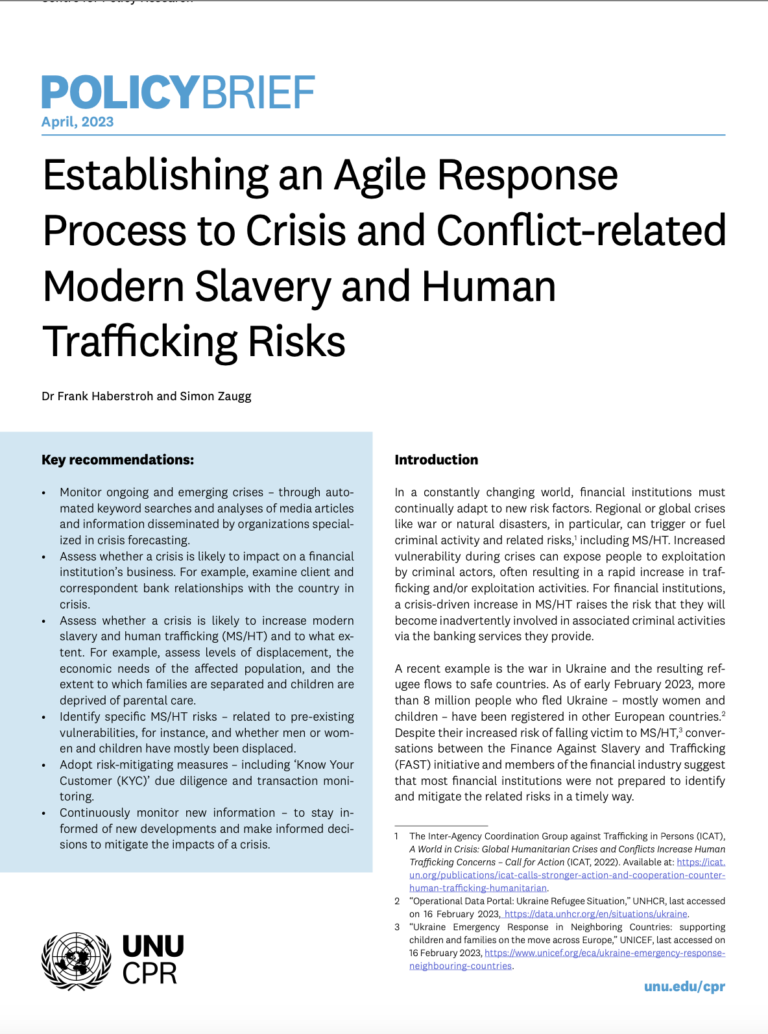In a constantly changing world, financial institutions must continually adapt to new risk factors. Regional or global crises like war or natural disasters, in particular, can trigger or fuel criminal activity and related risks,1 including MS/HT. Increased vulnerability during crises can expose people to exploitation by criminal actors, often resulting in a rapid increase in traf- ficking and/or exploitation activities. For financial institutions, a crisis-driven increase in MS/HT raises the risk that they will become inadvertently involved in associated criminal activities via the banking services they provide.
A recent example is the war in Ukraine and the resulting ref- ugee flows to safe countries. As of early February 2023, more than 8 million people who fled Ukraine – mostly women and children – have been registered in other European countries.2 Despite their increased risk of falling victim to MS/HT,3 conver- sations between the Finance Against Slavery and Trafficking (FAST) initiative and members of the financial industry suggest that most financial institutions were not prepared to identify and mitigate the related risks in a timely way.

